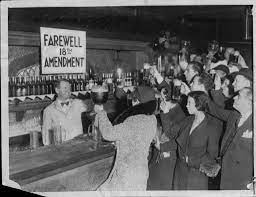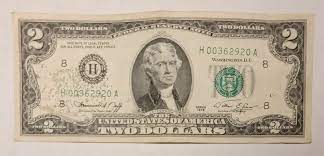On October 4, 1933, a significant event occurred in the United States that would forever change the landscape of alcohol regulation - the ratification of the 21st Amendment, which effectively repealed the 18th Amendment, also known as the Prohibition Amendment.
The 18th Amendment, ratified in 1919, had imposed a nationwide ban on the production, sale, and transportation of alcoholic beverages. It was a culmination of the temperance movement's efforts to combat the perceived social ills associated with alcohol consumption. However, the implementation of Prohibition led to unintended consequences that would ultimately lead to its demise.
The Prohibition era gave rise to the illegal production and distribution of alcohol. Organized crime syndicates, such as the infamous Chicago Outfit led by Al Capone, profited greatly from bootlegging and the operation of speakeasies - secret bars that operated underground. The demand for alcohol remained high, and the ban only served to fuel the black market and criminal activities surrounding the trade.
As the negative effects of Prohibition became increasingly apparent, public sentiment began to shift. The ban was seen as ineffective in achieving its intended goals and was often associated with corruption, violence, and the erosion of civil liberties. Advocacy groups, such as the Association Against the Prohibition Amendment (AAPA), lobbied for its repeal, arguing that legalizing and regulating alcohol would be a more effective approach.
On October 4, 1933, Congress passed the 21st Amendment, which proposed the repeal of the 18th Amendment. This marked the first and only time in U.S. history that a constitutional amendment was repealed by another amendment. The 21st Amendment was subsequently ratified by the states, officially ending the era of Prohibition.
The repeal of the 18th Amendment had profound social, economic, and political implications. It was seen as a victory for personal freedom and individual choice. The legalization of alcohol brought an end to the illicit alcohol trade and the associated criminal activities, effectively dismantling the power and influence of organized crime groups involved in the bootlegging industry.
The repeal also had significant economic implications. The alcohol industry, which had been virtually shut down during Prohibition, was revitalized. Legalizing alcohol created jobs, stimulated the economy, and generated tax revenue during a time of economic depression.
Moreover, the repeal of the 18th Amendment marked a turning point in the relationship between the federal government and individual states. Prohibition had been a federal mandate, imposing a nationwide ban on alcohol. However, the 21st Amendment granted states the autonomy to regulate alcohol within their borders. This shift in power reflected a recognition that alcohol regulation was best suited to local control and allowed for a more nuanced approach to alcohol policy.
The repeal of the 18th Amendment and the subsequent ratification of the 21st Amendment serve as a reminder of the importance of balance and pragmatism in policymaking. Prohibition was an ambitious attempt to address social issues through legislation, but it ultimately proved to be an ineffective and counterproductive approach. The repeal of the 18th Amendment was a testament to the ability of the democratic process to correct misguided policies and adapt to changing societal needs.
October 4, 1933, will forever be remembered as the day when the United States officially repealed the 18th Amendment, ending the era of Prohibition. The repeal marked a significant shift in alcohol regulation, recognizing the need for a more balanced and pragmatic approach. It brought an end to the illicit alcohol trade, stimulated the economy, and restored personal freedoms. The legacy of the 18th Amendment and its repeal serves as a reminder of the importance of evidence-based policies and the ability of a nation to learn from its mistakes.






